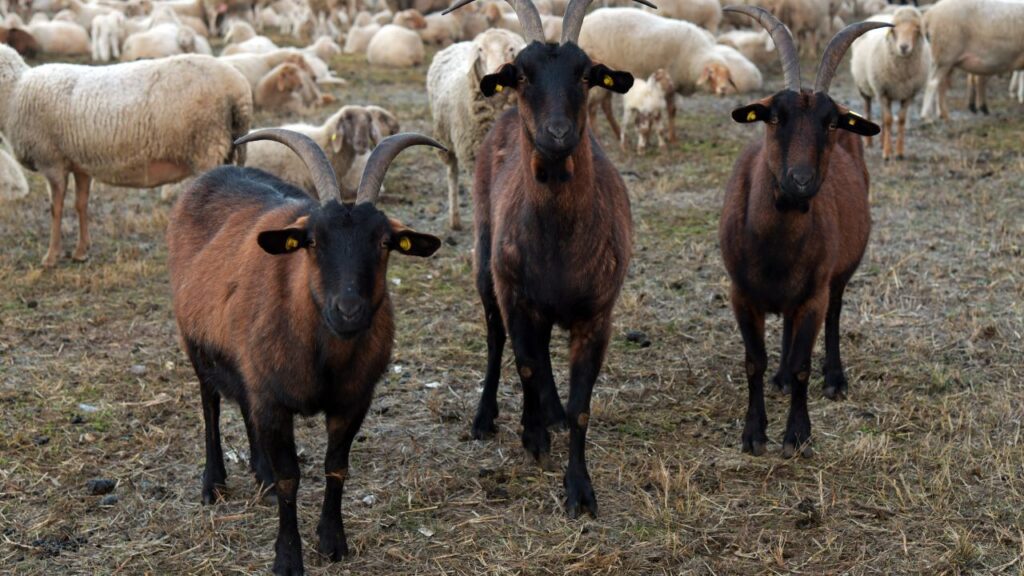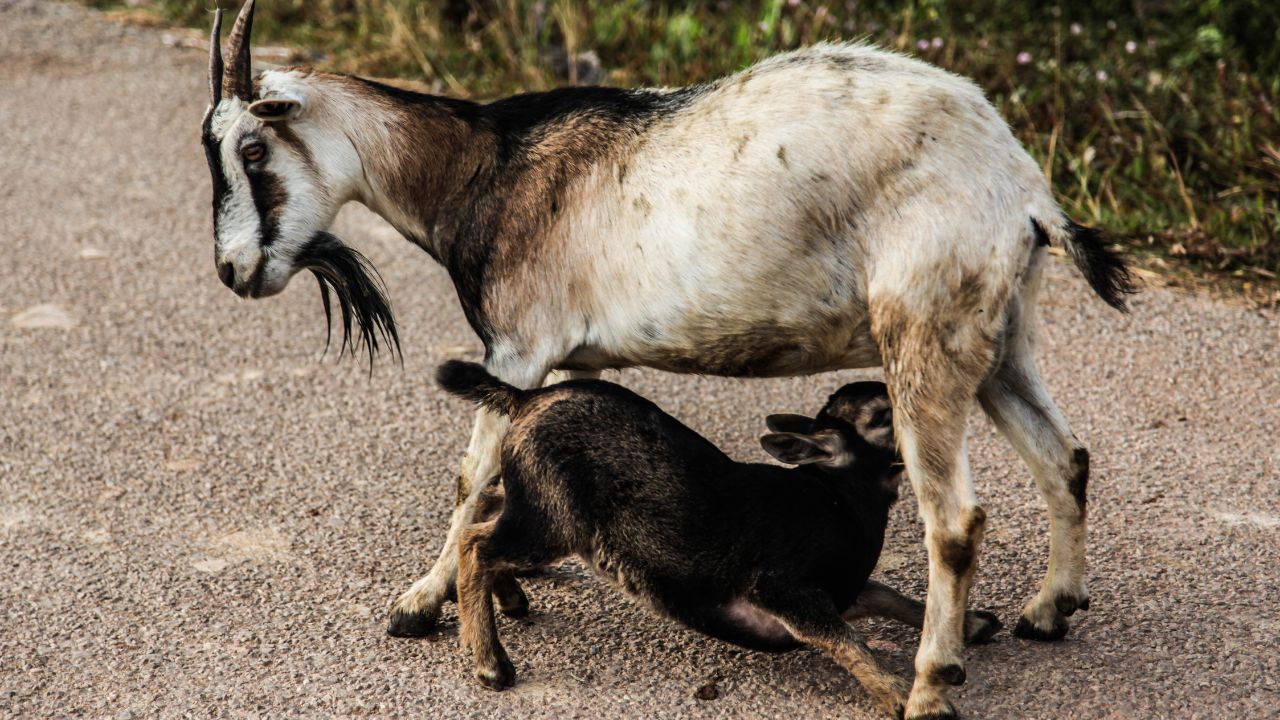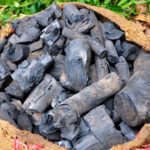How to start Goat Farming in Uganda. Goat farming in Uganda has become increasingly popular, and for good reason.
Goats are a versatile livestock option that thrives well in Uganda’s climate and can be a source of meat, milk, and even income.
Whether you’re a total newbie or someone who’s already dipped their toes in farming, starting a goat farming business can be both exciting and challenging.
Let’s dive into how to start goat farming in Uganda.
Why Goat Farming in Uganda is a Game-Changer
You might be wondering, why goat farming in Uganda. Well, the answer is simple.
Goats are resilient, low-maintenance animals requiring far less input than cows or chickens.
They’re adaptable to different terrains and weather, which makes them a perfect match for Uganda’s diverse landscapes.

Goats are also a significant source of income and trust me, the demand for goat meat, milk, and by-products is growing not just in Uganda but across East Africa.
So, starting a goat farm could be the business idea you’ve been waiting for!
You may be asking, “How much money do I need to start goat farming in Uganda?” Great question!
For a small-scale setup, you can start with as little as UGX 2 million, but if you’re thinking big and want to go commercial, that number can shoot up to UGX 10 million or more.
But no need to break the bank from the get-go; start small and grow as your farm does!
Let’s look at the steps on how to start goat farming in Uganda.
1. Select the Right Breed of Goats
One of the most critical decisions you’ll make when learning how to start goat farming in Uganda is choosing the right breed.
Just like you wouldn’t use a spoon to eat soup (although some do!), you need to pick the right goat breed for your farming goals.
Meat or Dairy?
First, decide whether you want goats for meat or milk production. For meat, Boer goats are an excellent choice.
They’re a bit pricey but grow fast and offer more meat than your regular goat.
Local breeds like the Small East African Goat are also a popular choice due to their adaptability to local conditions and low susceptibility to diseases.
For milk production, Saanen or Toggenburg breeds are ideal. They’re high milk producers and can make a great addition to any farm if you’re thinking of going the dairy route.
Mixed Farming
Can’t decide? No worries, many farmers go for a mixed approach, raising both meat and dairy goats.
It allows for a more diversified income stream. So, whether you want milk for cheese production or goats to sell at the market, there’s a breed that suits your needs.
2. Set Up Your Goat Pen (Housing)
When setting up housing for your goats, you don’t need a five-star hotel, but it’s essential to get the basics right.
The second step on how to start Goat Farming in Uganda is setting up a goat pen.
Goats need shelter from extreme heat, rain, and cold, and keeping them in well-built housing can help prevent diseases and keep them comfy.
Spacing and Structure
Ensure each goat has at least 1.5 square meters of space. No one likes feeling cramped, and your goats are no different.
The shelter should also be well-ventilated to reduce respiratory issues and keep the goats cool during Uganda’s hotter months.
You don’t have to build an elaborate structure; using locally available materials like wood, iron sheets, or bamboo can help reduce costs.
What’s more, goats don’t like standing in water (who does?), so raising the floor helps to keep their feet dry and prevents infections.
3. Feed Your Goats the Right Way
Feeding is where many new farmers stumble but don’t worry! Goats aren’t fussy eaters, but they do need the right nutrition to grow strong and healthy.
The good news? They can survive on natural grazing, but if you want your goats to reach their full potential, you might want to supplement their diet.
What to Feed Goats in Uganda
For starters, goats love Napier grass, sweet potato vines, and legumes like cowpeas. These are easily grown in Uganda, so you can save some cash by growing your own feed.
If you’re going commercial and want faster growth or increased milk production, you may also want to introduce grain supplements and mineral blocks to boost your diet.
Always make sure your goats have access to clean drinking water (no one wants thirsty goats wandering around!).
And here’s a funny tip: Goats have a reputation for being curious creatures, so if you ever spot one chewing on something strange—like your shirt—it’s probably just exploring (but maybe don’t let them).
For more on goat feeds especially how to mix them, see this.
4. Give Health and Veterinary Care
Healthy goats are happy goats, and happy goats make profitable farmers.
Keeping your herd healthy is key to successful farming, so understanding goat diseases and how to prevent them is part of learning how to start goat farming in Uganda.
Common Goat Diseases and Prevention
- PPR (Peste des petits ruminants) is a viral disease that’s quite common in Uganda. Thankfully, there are vaccinations available, so make sure to stay up to date with your goats’ health checks.
- Foot rot can occur if your goats’ shelter is too damp. As mentioned, keeping the floors dry is an easy way to avoid this.
- Worms and parasites are common issues that can affect your goats’ growth. Regular deworming is essential, and it’s always best to consult with a local vet for advice.
A stitch in time saves nine—it’s always cheaper to prevent a disease than to treat it.
5. Market Your Goats
You’ve raised your goats, and taken care of them, and now it’s time to sell. Where do you start?
The local demand for goat meat in Uganda is high, particularly during festive seasons and in cities like Kampala.
You can sell your goats directly to butchers or at local livestock markets.
If you’re into dairy, goat milk and cheese are gaining popularity.
Ugandans are increasingly looking for alternatives to cow milk, especially those with lactose intolerance. Marketing your products in urban centres can yield higher returns.
If you’re ambitious and want to go global, exporting goats to neighbouring countries like Kenya or Sudan could be a future opportunity.
Who knows, your farm might become the next big thing in East Africa!
Your Turn…
Goat farming in Uganda is both fun and profitable if done right.
Now that you know how to start goat farming in Uganda, the next step is getting your hands dirty (literally!) and beginning the process.
Patience, hard work, and dedication will pay off, and soon you’ll see your goats grow into a thriving business. So, what are you waiting for? Let the goat farming adventure begin!










